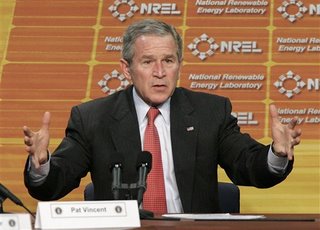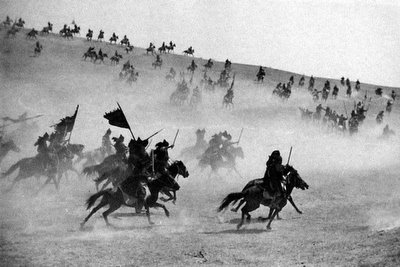 This is the first installment in a new series on Blovi-blog. Every couple of weeks I'll be featuring a new Muslim R.A.H. (Reformer, Apostate, or Heretic). The militants and fundamentalists steal all the limelight, while the challengers of the orthodoxy usually only garner attention when someone is trying to kill them. In that light, the R.A.H. will be dedicated to highlighting all the Muslim dissenters and critics out there. Yes, they do actually exist. Some of these people are quite articulate and perceptive, some aren't. But the all of them deserve some respect for promoting open debate about religion in the Muslim world.
This is the first installment in a new series on Blovi-blog. Every couple of weeks I'll be featuring a new Muslim R.A.H. (Reformer, Apostate, or Heretic). The militants and fundamentalists steal all the limelight, while the challengers of the orthodoxy usually only garner attention when someone is trying to kill them. In that light, the R.A.H. will be dedicated to highlighting all the Muslim dissenters and critics out there. Yes, they do actually exist. Some of these people are quite articulate and perceptive, some aren't. But the all of them deserve some respect for promoting open debate about religion in the Muslim world.My first profile is a rising star in the arena of critical debate on Islam,
Wafa Sultan. In the last week or so, the video of her controversial interview on Al-Jazeera has been spending a lot of time zipping around the fiber-optic arteries of cyberspace. You can find
Wafa Sultan's famous Al-Jazeera appearance here. Here is a link to the
transcript of her Al-Jazeera appearance on the M.E.M.R.I. website. Here's are some of the more interesting remarks she made in the debate:
The clash we are witnessing around the world is not a clash of religions, or a clash of civilizations. It is a clash between two opposites, between two eras. It is a clash between a mentality that belongs to the Middle Ages and another mentality that belongs to the 21st century. It is a clash between civilization and backwardness, between the civilized and the primitive, between barbarity and rationality.
The Prophet of Islam said: "I was ordered to fight the people until they believe in Allah and His Messenger." When the Muslims divided the people into Muslims and non-Muslims, and called to fight the others until they believe in what they themselves believe, they started this clash, and began this war. In order to start this war, they must re-examine their Islamic books and curricula, which are full of calls for takfir and fighting the infidels.
What civilization on the face of this earth allows him to call other people by names that they did not choose for themselves? Once, he calls them Ahl Al-Dhimma, another time he calls them the "People of the Book," and yet another time he compares them to apes and pigs, or he calls the Christians "those who incur Allah's wrath." Who told you that they are "People of the Book"? They are not the People of the Book, they are people of many books. All the useful scientific books that you have today are theirs, the fruit of their free and creative thinking.
The Jews have come from the tragedy (of the Holocaust), and forced the world to respect them, with their knowledge, not with their terror, with their work, not their crying and yelling. Humanity owes most of the discoveries and science of the 19th and 20th centuries to Jewish scientists. 15 million people, scattered throughout the world, united and won their rights through work and knowledge. We have not seen a single Jew blow himself up in a German restaurant. We have not seen a single Jew destroy a church. We have not seen a single Jew protest by killing people. The Muslims have turned three Buddha statues into rubble. We have not seen a single Buddhist burn down a Mosque, kill a Muslim, or burn down an embassy. Only the Muslims defend their beliefs by burning down churches, killing people, and destroying embassies. This path will not yield any results. The Muslims must ask themselves what they can do for humankind, before they demand that humankind respect them.

Wafa apparently chose her words to be as provocative as possible for the Al-Jazeera audience. She passionately states her case and it's pretty obvious there's a great deal of anger behind what she says. If nothing else, you have to admire this woman's courage to assert her taboo opinions so openly. By openly stating such controversial views she is sure to have generated some debate in the Arab world. She does raise some valid points about the barbarity of religiously-motivated violence, it's prevalence in Islam today, and the orthodox ideas that perpetuate them. In traditional Muslim societies where this sort of debate is forbidden, this may be the first time they've heard an Arab woman openly make such arguments. However, much of what she says is overblown rhetoric, and of course it's completely one-sided. I came across this interesting rebuttal to the M.E.M.R.I video and transcript of her appearance on a
Desicritics discussion thread (scroll to the bottom of the page, comment #18). I don't agree with all of the points, the posts author occassionaly resorts to Wafa-style rhetorical tactics at points and makes a spurious claim about her being a Coptic Christian. Nonentheless, I found the points about the translation and editing of the debate by M.E.M.R.I, and the misrepresentation of the Quranic passages Wafa makes reference to in the debate to support her claims to be very valid points.
Hmm, how is she a hero?
to those that will bother to learn:
i WATCHED this clip on Al Jazeera itself, and guess what, EVERY point she said was replied to, and after a certain point, she changed her tone... don't take memri seriously cause it's biased EVEN in words translated.
anywho, here are some points to those that'll bother to read:
1- This clip is incomplete, there's a HUGE part that's NOT in there, where SHE ended up looking like an idiot and changing her tone because she knew what she was saying was wrong. memri is VERY selective, notice the cuts in the video.
2- If you think stuff like this doesn't come on Al jazeera and other arab channels all the time, you're kidding me... you need to follow arab tv more before you critize it... believe it or not, Al-Jazeera was Bush's pal before they broadcasted something bush didn't like. Yay.
3- secondly mistranslations from memri such as "woman as a beast, no, woman as a mule" "are you a heretic, no , are you an Atheist" "secular, no, science believer" "i'm a secular person that does not believe in spirtual things, no, i am a science beleving woman that does not believe in anything paranormal" memri is VERY selective in translations to invoke even more anger. especially the heretic point, since he wasn't insulting her, he was asking her if she was an atheist or not. (and additon i'm just adding, he was saying that if she was an atheist, then there is no blame on her of committing blasphemy, which actually SHOWS civility)
4- other than her points, which mostly DON"T make sense and which SHE HERSELF retracted afterwards (in the part you don't see) it's obvious by anyone that knows arabic is that her Arabic is NOT native, it's TAUGHT as a second or third language. any phonetics expert could tell that.
5- it's obvious she hasn't been in most of the muslim countries lately if she thinks we're backwards and living in some sort of "repression and ignorance" do yourself a favor, do a search on Melody tv and/or singers such as the egyptain "ruby" the lebanese "nancy agram" and a zillion others, or do a search for arabic movies from even the 1950's and before.
6- she opposes that muslims refer to non-muslims with names they haven't chosen, well then she should be offended by the term 'goy' ,'gentiles', 'unenlightened' and whatever term christians use or used to denote non christians... and don't even CLAIM they didn't exist, because guess what, christians thought non christians were barbarians and savages and that's why there were missionaries, you know who else thought they needed to bring enlightment to others? the japanese when they invaded and buthchered china.
anywho, for the terms she opposes;
a- "Ahl el Beit" directly means "people of the house" meaning wise means: people of the house of God.
b- "ahl el kotob" directly means "people of the book" meaning wise means: people of the books of God, i.e people who believe in one of the holy books (torah, Enjeel, Qu'ran).
c- "ahl el Dhimma" directly means "people of Concience" meaning wise means: people who have concience.
d- "el nasara" directly means "the victory helpers" meaning wise: "those who saved the Muslims" or "those that stood by the muslims" in islamic history, when the Prophet Mohammed and his followers were being attacked and killed in Mecca, they left for Madina, Madina was a Christian City, and the people of Madina helped the Prophet and the muslims, and they shared their houses and Bread, el Nasara is a term used to show how much islam LOVES these people.
so far, the above three names AREN"T in any way offensive... now let's see what she says that SEEMS offensive:
a- " El Maghdoob 3alehom" (3 denotes a sound unavalible in english) : directly means :"those that are angered upon" meaning wise : "those that God frowns upon, or God is angry at" HOWEVER, this word is NOT used to refer to christians or jews , or even ANYONE in particular, it is used to refer to those that have gone astray and God is angry at, it's part of a prayer that basically is asking God not to be one of those Gone astray... not so evil sounding now is it?
b- "el khanzeer we'll Korooud" : "the monkeys and pigs" (both translations) : Everyone attacks this point for existing... HOWEVER what they don't understand, YES it exists in the Qu'ran but it's telling part of a story.
In the story, Some people angered God so God turned them to Pigs and Monkeys. and yes these people WERE jews. however this story is a story that PREDATES Islam by eons, and it's not used to riducle or attack jews, it's used to show that EVEN followers of God can anger God if they disobey him. in this vein i guess everyone should attack both the bible and the Qu'ran for having mass genocide (Noah's Flood).
are these words used in a bad way? Yes, sometimes by some people THEY ARE USED, but then again, so is the term Sand Nigger.
i can't recall what other names she was "angry at"
7- in NO part of Islam does it call to "Fight non muslims until they believe" in fact, in Part of the Qu'ran, The Prophet was sad that he couldn't get everyone to believe in God, and God told him " I ordered you to Preach to them, NOT to force or convert them,if you can go into the deepest earths or highest heavens, to find something that would make them believe, then do so, If i willed, i would make everyone a believer."
YAY FOR MISINFORMATION! i hope the above passage cleared up the view of "FORCING" someone into a religon, which DOESN"T EXIST in islam. and umais already said, it's spreading in europe and the usa and other western cultures... is anyone FORCING them to convert?
8- Muslims started a culture clash or a clash of civilizations? really? hmm, that's odd... i thought people were doing that for centuries and ages and ages.... even before the existance of muslims.... hmm... anyone care to clarify to me how this is even possible? is it a time paradox of some sort? did some muslim guy invent a time machine or something?
9- as for saying "they're people of all scientific books" yeah, go ahead and ignore all the arab and muslim influences on science... in fact go ahead and ignore the MUSLIM egyptain scientist called "Ahmed Zoweil" who's researches have more or less changed physics for the past few years. yeah.
10- As for her point that no jews burn embassies or kill germans... some probably did, but other than that, did she point out that they've killed and bombed arabs and their holy places?
Maybe she is secular, but she is misinformed in her suggestions that The arabic and muslim world hasn't added anything to the worlds of science. Perhaps not so much in the modern world but they paved the way, pretty much all modern maths (algebra and further concepts of greek geometry) originated in the mid east.
Now on her statement that other peoples (christians, buddhists and jews were what she mentioned) don't commit attrocities for their religions and specifically the Jews who have achieved everything with hardwork and perserverence rather than complaining and murder;
The creation of Israel is the bloodiest blackest event in Jewish history. Not only did they conduct an incredibly violent hostile takeover in 1948 after they were eventually awarded a state, before that time they committed acts of terrorism both in the mid east and on the King David Hotel (a British fortress in Jerusalem) to muscle their way into Palestine.
Another main pivotal argument for the creation of Israel, the rights and respect attained by jews as the speaker suggested, was the holocaust. It is known that the Zionist movement used the holocaust as leverage and continue to defend their actions and label anyone who questions them as antisemetic.
If 50 years ago is too long ago to consider Jewish terrorism as significant then consider everyday of the time since then. Israelis broke into ['Israelis' is wrong, I believe he's referring to Baruch Goldstein] a mosque not too long ago and sprayed hundreds of bullets into the place murdering many not so long ago is just one such example of terror comitted in the name of Israel.
Christians aren't much better, from the Crusades where they roasted babies up to the conflict in Ireland and one can even argue American foreign policy today is Christian aggression.
also be sure not to ignore the recent attack on a church by 3 israeli's (one jewish) (there's an article i posted about it on shoutwire) , the attack on people PRAYING at the Aqsa mosque, the uss liberty, the borrowing that's threatening to make the Aqsa mosque collapse and a million other such attacks... Yes i know not all jews have done this, but hey, since she's generlizing i might as well do the same!
11- Islam says Judgement lies with God only... which is why there is a story in the Qu'ran about a brother that was constently praying, and another that wasn't... the one that was praying went to his brother and told him that he's going to go to hell, in the end it was the brother that was praying all the time that went to hell because he had done more evil even though he was praying at the same time.
12- she is not an atheist, she is a Coptic Christian. [She's defended Copts publicly but is a Syrian of Muslim background] She's well known in egypt.
13- in the videoclip, in arabic, she ATTACKED ALL MUSLIMS, and supported ALL Jews, she did NOT single out extremists in islam.
The point about M.E.M.R.I. being biased has been reiterated by
Juan Cole and
Dr. Bhaskar Dasgupta. M.E.M.R.I. has a very strong presence on the internet but undeniably has a strong pro-Israel agenda. Not exactly the most balanced source of information on the Arab media.
The NYTimes wrote a somewhat sympathetic
piece on Wafa. In it we learn that the killing of one her professors during a vicious anti-Baathist uprising by Muslim militants is the key event that precipitated her questioning of Islam. By the way, this was a vicious uprising on both sides in which Syria's dictator at the time
Hafez Al-Assad killed some 10000-40000 dissidents. You can find a
somewhat more critical article about Wafa in the LA Times.According to the NYTimes piece she's already received some death threats.
One message said: "Oh, you are still alive? Wait and see." She received an e-mail message the other day, in Arabic, that said, "If someone were to kill you, it would be me."
Dr. Sultan said her mother, who still lives in Syria, is afraid to contact her directly, speaking only through a sister who lives in Qatar. She said she worried more about the safety of family members here and in Syria than she did for her own.
"I have no fear," she said. "I believe in my message. It is like a million-mile journey, and I believe I have walked the first and hardest 10 miles."
While she's certainly captured a great deal of attention with her provocative statements, will her message have much resonance in the Muslim world? She's won a lot of admirers in the West. One of the many Western blogs bravely 'standing on guard for the free world against Islamofascism' has
proclaimed her to be the first Muslim Voltaire. Maybe just a tad premature? ;-) After all
Voltaire was a highly regarded intellectual before he ever took on the Christian establishment, was an outstanding scholar of Christianity, and wrote an enormous amount- he wrote over 20000 letters alone not to mention books, pamplets, novels etc. (he would have been a kick-ass blogger). Given that Wafa was born in the middle-east and is fluent in Arabic, she certainly has more credibility than some other 'Westernized' critics of orthodox Islam such as
Irshad Manji. She has also won some praise from a few secular Muslims. However, I'm quite certain the majority of Muslims would interpret her message as nothing more than a full frontal assault on their fortress of faith. In their eyes she probably comes across more as dangerously unbalanced, and a 'brainwashed sell-out', rather than rational and brave. In the LA Times article she's quoted as saying "I don't believe you can reform Islam". Her message obviously isn't a constructive reformist one, nor is it truly one of religious tolerance. It's a strong athiest message, it is clear Wafa hopes to tear down the walls of a faith she's come to despise. Sometimes hearing this sort of message can be a good thing, it can help wake the great mass of slumbering and complascent believers. On the other hand, this approach can backfire and end up provoking a vicious backlash. Not to mention it helps to bolster some of the most unfair and one-sided anti-Islamic rhetoriticians that currently flourish in the West. While she does raise very important points about the intolerance and rigidity plaguing contemporary Islam, in my view her repudiation of all things Muslim is driven as much by anger and hatred as it is by reason. The website she started her career as a critic on
Annaqed (The Critic), is full of similar enraged anti-Muslim and pro-US rhetoric. I'm partial to a more cold-blooded and synthetic approach to debating the issues- I think it produces a lot more meaningful progress in the long run and less destructive backlash. Even though I wished she toned down the rhetoric and took a more balanced approach, one has to admit her uber-confrontational style has stirred up some discussion among Muslims. Unfortunately, since much of what she says is unbalanced and totally lacking in nuance, it will be easy for critics to pick apart her arguments and ultimately ignore what she has to say.
One of the things this interview clearly demonstrates is that Al-Jazeera is a genuine forum for democractic and open debate. The accusation that they're a mouthpiece for extremists is misleading at best. They allow free debate like no other media outlet in the Arab world. Occassionaly free debate is going to bring up some voices that people won't want to hear but that comes with territory. Open Source recently had a very informative show on Al-Jazeera,
you can find it here. The debates were aired on the Al Jazeera show Al-Itijah Al-Mu'akis, Opposite Directions, a very provocative debate program hosted and put together by
Dr. Faisal al-Qassim. The show is notorious for getting extreme voices on different sides of very devisive issues. Apparently this show is hugely popular and has a reputation for debating any issue, no subject or opinion is taboo- as demonstrated by the Sultan video. Ironically, Opposite Directions has been the source of much of the 'unacceptable comments'
which have led to government censorship of Al Jazeera. Not only in Iraq
but in the West as well. If the West is serious about encouraging free speech in the Muslim world it has to learn to tolerate shows like this. Of course there's going to be some people who espouse a militant Islamist perspective because it exists in the region, but at the same time there will be plenty of voices to argue a pro-Western and reformist ideas. In the end, censorship ends up cutting off debate.
Wafa Sultan's vital R.A.H. stats:Religious status: Apostate, Secular humanist
Location: Syrian-born, Currently living in Los Angeles.
Raging Against the Mullahs Since:
July, 2005
What Got Her R.A.H. Ball Rolling:
Watching one of her professors being killed by militants from the Muslim Brotherhood.
Exposure Rating (0-10):
In the Muslim world- 5
In the West- 8
Likelihood of Influencing Muslim Reform (0-10):
2, she's declared herself to be non-Muslim. It's not going to win her much influence among the devout majority.
Special Abilities:
Talent for delivering a sustained, eloquent, and forceful rant in hostile territory.
Weaknesses:
Too much hate behind her words. One-sided, totally lacking in any nuance. Possibly emotionally unstable and probably will allow the anti-Islamists fawning get to her head.
Most provocative quote to date:
The clash we are witnessing around the world is not a clash of religions, or a clash of civilizations. It is a clash between two opposites, between two eras. It is a clash between a mentality that belongs to the Middle Ages and another mentality that belongs to the 21st century. It is a clash between civilization and backwardness, between the civilized and the primitive, between barbarity and rationality. It is a clash between freedom and oppression, between democracy and dictatorship. It is a clash between human rights, on the one hand, and the violation of these rights, on other hand. It is a clash between those who treat women like beasts, and those who treat them like human beings. What we see today is not a clash of civilizations. Civilizations do not clash, but compete.
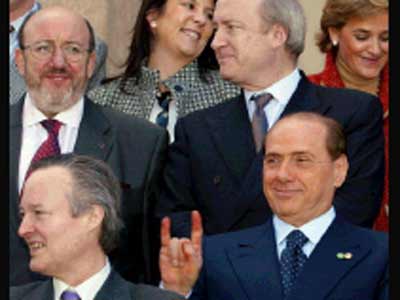

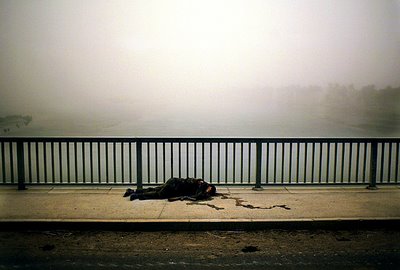






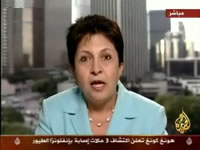
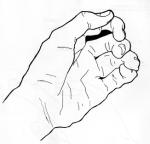
 Pay for me music?? Arrr, take that you scurvy CRIA dawg!
Pay for me music?? Arrr, take that you scurvy CRIA dawg!

